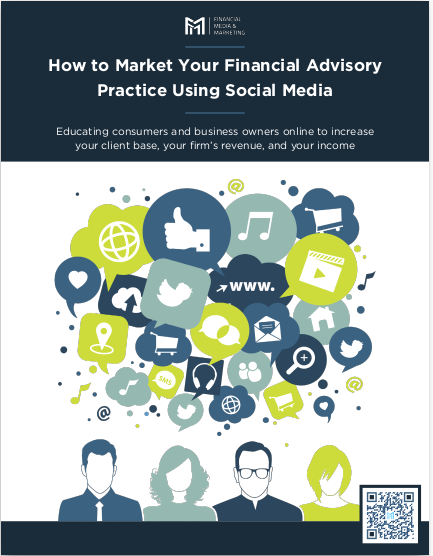Key Takeaways:
-
You don’t need aggressive sales tactics to attract clients—positioning yourself as a trusted expert is far more effective.
-
A strong online presence, personalized engagement, and educational content can help you build relationships and gain high-quality leads.
Stop Selling, Start Educating
Nobody likes being bombarded with a sales pitch, especially when it comes to finances. The best way to gain trust and attract new clients is by offering value rather than pushing services. Instead of focusing on making a sale, shift your approach to educating potential clients about financial strategies, market trends, and long-term planning. By positioning yourself as a helpful resource, you naturally become the person they turn to when they need financial guidance.
Lead with Value
Your expertise is your best marketing tool. Instead of highlighting your services right away, offer free and valuable insights. Consider strategies such as:
-
Writing blog posts about common financial concerns in 2025
-
Hosting webinars on retirement planning or investment strategies
-
Sending out a newsletter with actionable financial tips
-
Creating bite-sized social media content that educates without overwhelming
-
Developing free financial tools, like retirement calculators
-
Offering PDF guides that provide step-by-step strategies for financial planning
By consistently providing helpful information, you establish credibility, which makes potential clients more inclined to trust and eventually hire you.
Make Your Online Presence Work for You
A solid digital footprint is crucial for financial advisors looking to attract new leads. Your website and social media platforms should be designed to engage, inform, and convert visitors into clients.
Optimize Your Website for Engagement
Your website is often the first impression potential clients have of you, so make it count. Ensure that your site:
-
Clearly explains your expertise and services
-
Includes easy ways to contact you
-
Features client testimonials and case studies (without sounding like a hard sell)
-
Offers free resources, such as financial guides or budgeting templates
-
Is mobile-friendly and optimized for search engines
-
Uses compelling calls-to-action that encourage visitors to schedule a consultation
-
Features a blog section regularly updated with relevant insights
Leverage Social Media the Right Way
Social media isn’t just for networking—it’s a powerful way to establish authority and connect with potential clients. Focus on sharing valuable insights rather than self-promotion. Ideas include:
-
Posting short video tips on investment trends
-
Sharing infographics that simplify complex financial topics
-
Hosting live Q&A sessions to engage with your audience
-
Posting relevant industry updates with your insights
-
Creating short, digestible posts that highlight key financial concepts
-
Engaging with followers by responding to comments and questions
A well-maintained social media presence can position you as a go-to expert without making you seem like you’re constantly selling.
Build Trust Through Personalized Engagement
People don’t just hire financial advisors based on credentials—they hire those they feel comfortable with. Creating genuine connections with potential clients increases your chances of turning leads into long-term relationships.
Offer Free Initial Consultations
A no-pressure, free consultation can give potential clients a taste of your expertise without making them feel obligated to commit. Structure your consultation around their concerns rather than your services. Ask questions like:
-
“What’s your biggest financial worry right now?”
-
“What are your long-term financial goals?”
-
“What kind of financial guidance do you feel would benefit you most?”
By focusing on their needs, you shift the conversation away from selling and toward problem-solving.
Follow Up Without Being Pushy
A well-timed follow-up email can keep you top-of-mind without coming across as aggressive. Rather than a generic sales message, send personalized emails with:
-
Additional insights based on your last conversation
-
A link to an article or guide related to their concerns
-
A simple “Checking in” message with an invitation to ask questions
-
A relevant webinar invitation that aligns with their interests
Personalized follow-ups demonstrate that you care about their needs rather than just closing a deal.
Content Marketing: The Secret to Long-Term Success
Content marketing is one of the most effective ways to build your brand as a financial advisor. By regularly sharing valuable content, you keep potential clients engaged until they’re ready to take action.
Blogging to Showcase Your Expertise
A blog allows you to educate your audience while improving your website’s search engine rankings. Focus on topics that address common financial concerns, such as:
-
The impact of inflation on retirement savings in 2025
-
How to create a financial safety net during economic uncertainty
-
Tax-saving strategies for different income levels
-
How recent policy changes may affect investment options
-
Strategies for optimizing retirement accounts in fluctuating markets
Your blog should be a resource people return to, positioning you as the authority they trust.
Video and Podcast Content
Not everyone likes reading lengthy blog posts. Video content and podcasts can help you reach a wider audience. Consider:
-
Short explainer videos breaking down financial concepts
-
A podcast where you discuss industry trends
-
Live webinars with guest experts
-
Animated explainer videos simplifying investment strategies
-
Interview-style podcast episodes with experienced professionals
Video and audio content make financial advice more digestible and engaging.
Networking Without the Hard Sell
Traditional networking is still a powerful tool for financial advisors, but it should be approached with authenticity.
Engage in Community Events
Instead of just attending industry conferences, consider local events where you can meet potential clients naturally. Community events allow you to engage in conversations without the pressure of a sales setting.
-
Sponsor a local charity event or financial literacy workshop
-
Offer free financial planning consultations at a local community center
-
Engage in online forums where people discuss financial topics
Partner with Other Professionals
Collaborate with accountants, real estate agents, and attorneys to create referral networks. A trusted recommendation from another professional is often more effective than any sales pitch.
Word-of-Mouth Marketing: Let Others Sell You
The best marketing comes from satisfied clients. Encourage referrals and testimonials by delivering exceptional service.
Encourage Happy Clients to Share Their Experience
A simple request such as, “If you found our work helpful, I’d really appreciate it if you shared your experience,” can go a long way. Positive reviews help establish trust with potential clients.
Offer a Client Loyalty Program
While you don’t want to offer incentives that feel transactional, a small gesture of appreciation—such as exclusive financial insights or priority booking—can encourage long-term client loyalty.
The Right Marketing Approach Pays Off
Marketing yourself as a financial advisor doesn’t mean turning every conversation into a sales pitch. Instead, focus on offering valuable insights, building trust, and engaging with potential clients in meaningful ways. By shifting from selling to educating, you attract better leads, build stronger relationships, and position yourself as the go-to expert in your field.










